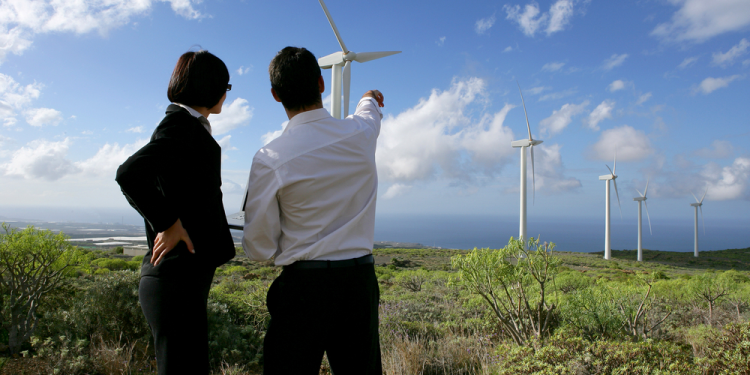Siemens

Founded in 1847, Siemens is a German international group specialising in high technologies including energy, industry, health, and services. It is also the biggest engineering company in Europe and one of the main employers in Germany. Over the years, Siemens has been constantly innovating to achieve energy efficiency, and today, it generates the most revenue per kilowatt used in the whole world.
Siemens lays a lot of emphasis on environment respect through the implementation of green policies and actions to achieve a very low carbon footprint. One of its objectives – in line with the UN Sustainable Development Goals – is to achieve decarbonisation by 2030. Siemens is also elaborating a smart cities project for the coming decades while investing in lifelong learning to ensure employability for the next generations.
Storebrand ASA

Storebrand ASA is a Norwegian company specialising in insurance products and services for individuals, businesses, and the public sector. Its activities include providing insurance, savings plans, and guaranteed pensions. On its own, Storebrand manages some NOK 600 billion for over 1.2 million Norwegians, excluding its operations in Sweden.
Storebrand has a unique sustainable investment method, focusing more on companies having a greater production capacity for greater consumption while using fewer resources – which becomes possible via thorough research and analysis. Thanks to collaborative efforts, Storebrand has been able to channel its funds towards environmental-friendly solutions while continuing to support sustainability-oriented businesses. In 2008, Storebrand became the leading climate neutral financial group in Norway through its policies aimed at limiting CO2 emissions and reducing its own carbon footprint.
Cisco

One of the world's pioneers in information technology, Cisco Systems was founded in 1984 in the USA. Specialising in network hardware and servers, it offers a wide range of solutions such as wireless technology, voice over network, software, network security, and storage solutions. As one of the world's most innovative companies, Cisco guarantees gender parity on its board of directors.
Cisco has committed to reducing greenhouse gas emissions through its operations and supply chain — reducing packaging, optimising the life cycle of its products, and increasing product returns for rehabilitation and reuse are part of this process. By investing in transformative solutions, Cisco aims at achieving sustainable commercial results both for the company and its customers. In 2016, it also implemented a series of measures to reduce at least one million of metric tonnes of GHG emissions from its operations by 2020.
Danske Bank

In 1990 Den Danske Bank, Handelsbanken and Provinsbanken merged and one of Denmark's leading banks, Danske Bank, was founded. Its headquarters are based in Copenhagen while it operates in most Nordic countries as well as Estonia, Latvia, Lithuania, Ireland, and Australia. With over five million individuals, corporate, and public customers, Danske Bank provides a wide range of products and services such as real estate finance, leasing, insurance, and pension plans.
Danske Bank is also deeply committed to the corporate social responsibility, which also allows it to show a better performance with greater transparency. It has been very active in the fields of education, volunteering, and support for sustainable growth initiatives. In 2015, it implemented a new strategy to tackle the main challenges in a way to bring greater value for the society and the company. Danske Bank also seeks to improve its energy efficiency by limiting the negative impact of its operations on the environment. In line with ISO 14001 standards, it also aims at reducing its CO2 emissions through better energy management.
Danske Bank supports international commitments that encourage companies to operate in a responsible way, including the United Nations Global Compact, the OECD Guidelines for Multinational Enterprises, the United Nations Principles for Responsible Investment (UNPRI), and the United Nations Initiative for the Financing of the Environmental Program (UNEPFI).
ING Group

Established in 1991 following the merging of Nederlanden with MB Postbank, the ING Group is an international financial institution based in Amsterdam. Its main activities include retail, commercial, direct, and investment banking, as well as asset management and insurance services. Being one of the biggest banks in Europe, it is also one of the world's most prestigious with a gross income of over 150 billion dollars per year. Today, the bank has more than 48 million individuals and institutional customers in some 40 countries and a workforce of 75,000 employees.
Sustainability is one of the key aspects of ING Group's business strategy. Committed to securing its customers' long-term success, it provides a wide range of services including financial education, financial support for people in distress, and support for entrepreneurs to get started. ING Group also helps its customers to face energy challenges and better manage their material resources by financing sustainable development projects.
Through the financing of projects and sustainable development, the group also helps its customers to cope with fuel and energy challenges and to have better management of their material resources.
Sources :
















